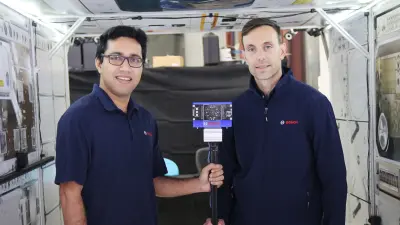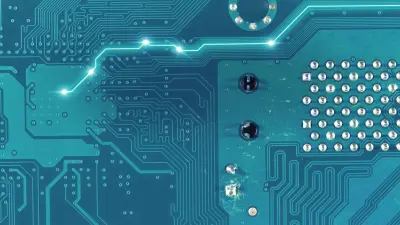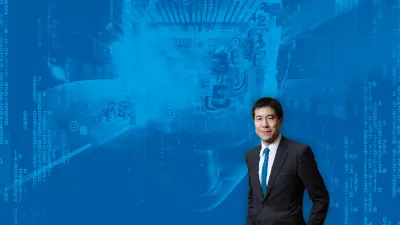Improving life on the International Space Station (ISS)
How a robot with an AI-based sensor system could make everyday life for astronauts easier
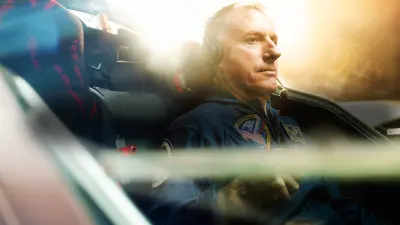
The SoundSee technology from Bosch could alert the crew on board the International Space Station (ISS) in case of defects. A former astronaut is involved in the development: Michael Foale knows what counts in space.
Walks in orbit
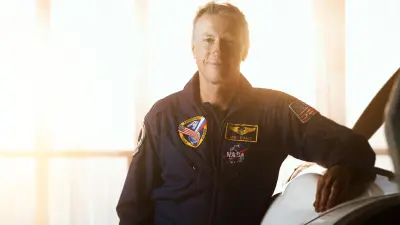
Space is a familiar place to Michael Foale. As an astronaut, he travelled there six times between 1992 and 2004, and in 2003 he served as commander of the International Space Station (ISS) for six months. He free-floated through space four times during his travels: “My first spacewalk is still fresh on my mind,” he recounts. “When I exited the Space Shuttle, I could see Earth and the Milky Way. It was nothing less than breathtaking.” It was a dream come true for him, a dream he had harbored since he was just six years old. “I always wanted to go into space — above all for the fantastic view,” Foale says.
374 Days
That’s how many days Michael Foale spent in space. Until 2008, this was a record for U.S. astronauts.
Space travel potential
Today, Foale is 62 years old and his days of orbiting Earth aboard rocket ships is a thing of the past. But his enthusiasm for space travel is unshakeable – and that’s something he wants to pass on to others.
He thinks the field of space tourism has a lot of potential: “I hope that more people will have the opportunity to travel to space in the future. I think that would spur new enthusiasm to explore outer space, which will lead to the formation of private companies who are self-financed and don’t rely on government funding.” Companies like these could accelerate space exploration and the development of new technologies. We are already reaping the benefits of innovations for astronautics, such as fire alarms, cellular/foamed material, and image sensors for cellphone cameras, for example.
Many scientists think that humankind should expand into space in order to feed the increasing demand for resources by mining raw materials on asteroids and colonizing new planets.
Foale is convinced that robots will play a pivotal role in future space travel. “I think that the close collaboration between humans and machines will be life-altering, and that robots will be very helpful for space exploration,” Foale says. That’s why he is part of a group of researchers working to develop robots for use in space. SoundSee, a Bosch sensor system for deep audio analysis, will be introduced to the ISS as part of this undertaking. Once it arrives, SoundSee’s ability to identify faults in machinery and devices through noise analysis will be put to the test.
Mini robot with microphones
The SoundSee technology for the ISS was developed by Bosch and Astrobotic, a U.S.-based company specializing in space robotics. Michael Foale has been supporting the team with tests on Earth for about a year. The SoundSee system is mounted on Astrobee, a cube-shaped mini robot developed by NASA that floats autonomously through the ISS. From this vantage point, the SoundSee microphones are expected to continuously record the operating noises of the machinery and equipment on board the space station.
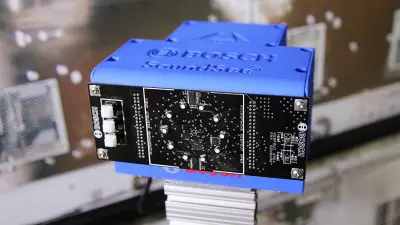
Listening for malfunctions with SoundSee
The audio files should then be sent back to Earth for evaluation by Bosch scientists. The researchers hope to be able to determine whether the operating noises emitted by individual machines correspond to or deviate from typical sounds patterns. Using the deviating sound signatures, they would then be able to determine whether the machines are experiencing technical malfunctions or whether a malfunction should be expected in the near future. “Such checks are particularly important for the vital systems on board the ISS, such as the air treatment or lighting systems,” Foale explains. If SoundSee informs the scientists of a pending fault, the ISS crew could be notified accordingly so that they can carry out repairs to the relevant machine or replace affected components.
Time-saver for busy astronauts
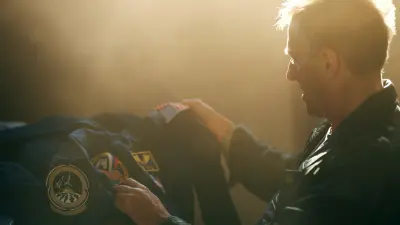
In autumn 2019, the sensor system was sent to the ISS aboard a rocket. Foale believes that SoundSee will serve as a vital aid in the astronauts’ everyday work: “On the ISS, your workday is chock-full of tasks. The astronauts are undertaking studies on the effects of zero gravity on cells, plants, and the human organism. This knowledge is very important for the planning and implementation of future missions to space. An athletic program is also part of everyday life on the ISS. The muscles of astronauts atrophy faster in space than on Earth due to the lack of activity that goes hand-in-hand with zero gravity. This means the muscles must be exercised to prevent health problems when the astronauts return to Earth. In addition, the astronauts are also constantly busy with checking the on-board equipment for malfunctions. This is where SoundSee could come in.” This system could save the astronauts time, which they could use for more important things. If the floating troubleshooter works as expected, it could also warn the crew before malfunctions occur. This would save even more time: “It is easier to maintain a machine than to repair it after a malfunction,” Foale says.
Useful monitor on Earth and beyond
If the test on board the ISS is successful, the integration of artificial intelligence (AI) would be the next conceivable step. AI could analyze the audio data and automate the troubleshooting process. Maybe SoundSee will one day be a standard feature on spacecraft, an indispensable tool to support the human exploration of space. But regardless of what the future may hold for space travel, SoundSee developers are confident that the tests on board the ISS will yield findings that may prove useful on Earth, too. SoundSee could be used to monitor heating, ventilation, and A/C systems or vehicle engines, for example. In the meantime, space is the perfect test lab for the developers to fine-tune the sensor system — not because of the stunning views, but because the vacuum of space isn’t nearly as noisy as the surface of the Earth.
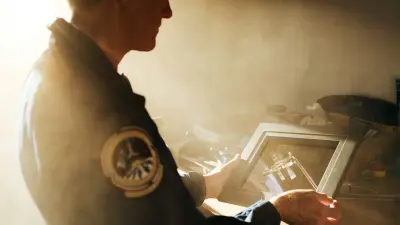
SoundSee: Audio analysis makes the ISS safer
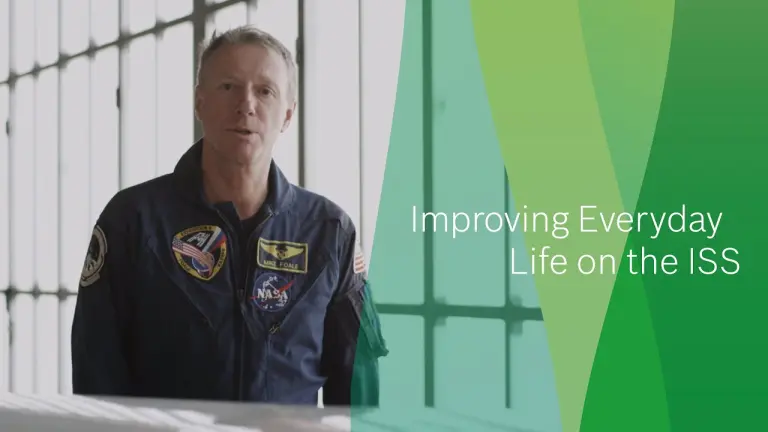
Loading the video requires your consent. If you agree by clicking on the Play icon, the video will load and data will be transmitted to Google as well as information will be accessed and stored by Google on your device. Google may be able to link these data or information with existing data.
Profile
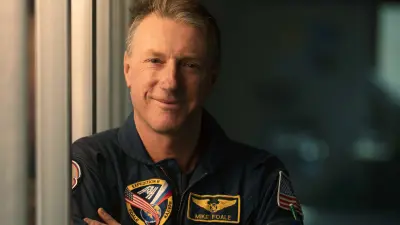
Dr. Colin Michael Foale, 62
former U.S. astronaut and ISS commander
Colin Michael Foale is British by birth. He studied physics at Cambridge University, where he received his doctorate in astrophysics in 1982. After graduating with a bachelor's degree, he moved to the U.S. to work for aircraft manufacturer McDonnell Douglas before joining NASA in 1983 where he served at the Johnson Space Center's flight control center in Houston, Texas. Nine years later he flew to space for the first time.
As an astronaut, Foale took part in six space flights and spent a total of 374 days in space. In 2013 he left NASA to apply machine learning methods to aerospace vehicles with his company, Foale Aerospace, Inc.
Summary
The Bosch SoundSee sensor system will be tested on the International Space Station (ISS). Its job is to record the operating noise of machinery, which Earth-bound researchers will analyze with the aim of detecting any technical malfunctions. If the test is successful, SoundSee could handle on-board machine inspections and give the astronauts some much-needed reprieve.
